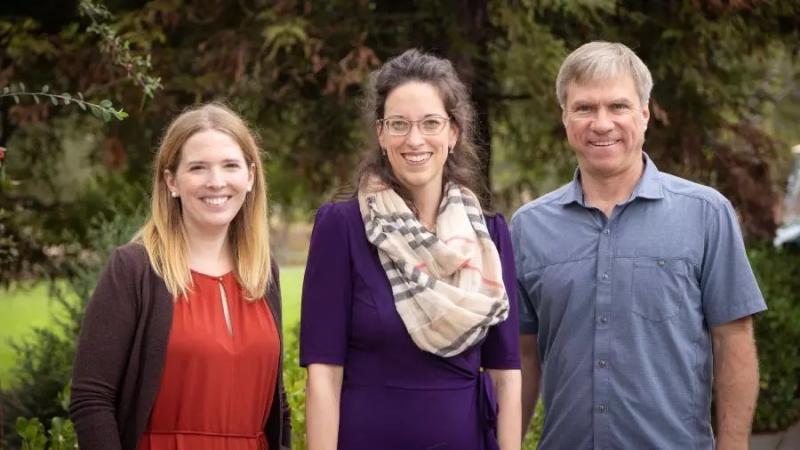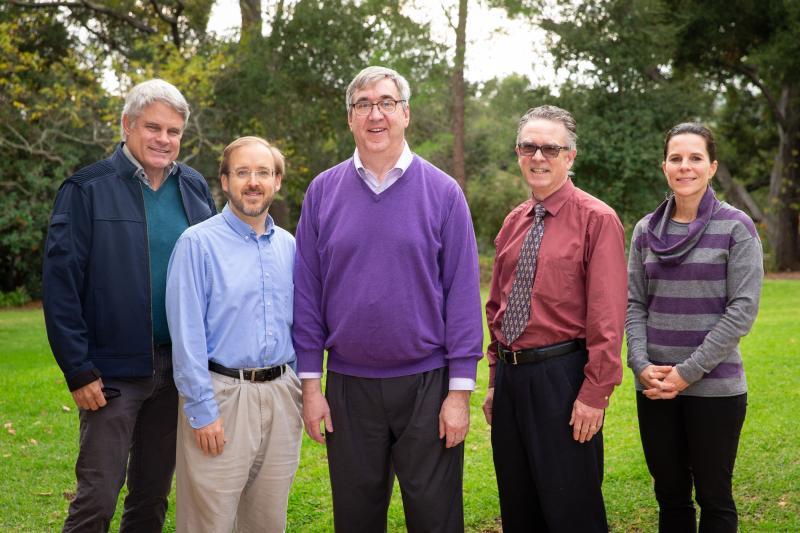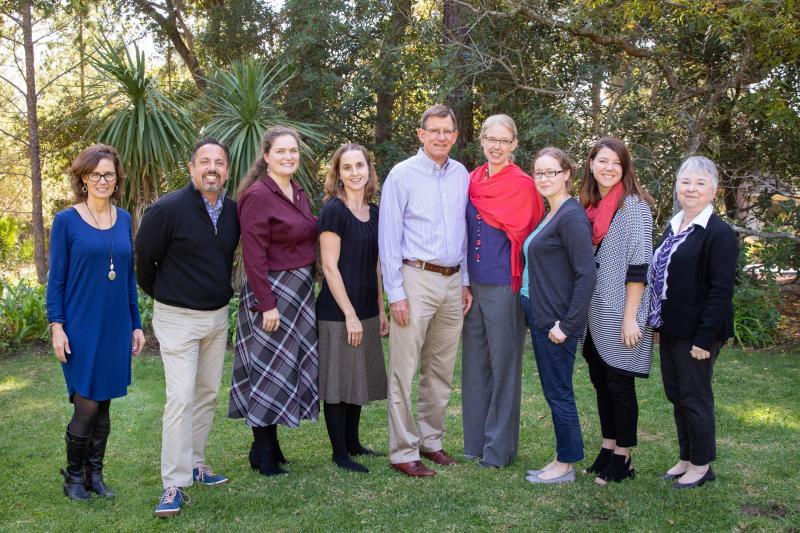Office of the Provost Educational Effectiveness
2024-2025: Critical Thinking
This academic year, we are assessing student learning in relation to the Critical Thinking outcome that reads, Westmont graduates will demonstrate sound judgment and creative thinking when evaluating the strength of evidence in support of a claim.
Dr. Bob Haring-Kaye (Physics) serves as our Lead Assessment Specialist for Critical Thinking.
Critical Thinking Assessment team includes:
Dr. Blake Kent (Sociology)
Dr. Ruth Lin (Music)
Dr. Jim Taylor (Philosophy)
2023-2024: Global Awareness
In the 2023-2024 academic year, we assessed student learning in relation to the Global Awareness outcome that reads, Westmont graduates will recognize global interconnectivity and opportunities , and analyze the systemic dimensions of major global challenges, informed by a biblical vision of justice, responsibility, and love.
Dr. Heather Keaney (History) served as our Lead Assessment Specialist for Global Awareness.
Global Awareness Assessment Team include:
Dr. Katheryne Bryant (Political Science)
Dr. Mary Docter (Modern Languages)
Dr. Patti Hunter (Mathematics)
You can find the Global Awareness Assessment report here.
2022-2023: Quantitative Literacy
in the 2023-2024, we assessed student learning in relation to the Quantitative Literacy outcome that reads, Graduates of Westmont College will apply relevant scientific, mathematical and logical methods to analyze and solve problems effectively.
Dr. Anna Aboud (Mathematics) served as our QL ILO Lead Assessment Specialist.
Quantitative Literacy team includes:
Dr. Michael Everest (Chemistry)
Dr. Carolyn Mitten (Education/Liberal Studies)
You can find the Summary of the Quantitative Literacy report here and the full body of the report here.
2021-2022: Information Literacy
In the 2021-2022 academic year, we assessed student learning in relation to the Information Literacy outcome that reads, Graduates of Westmont College will strategically research, wisely evaluate, and ethically integrate sources in various contexts.
Dr. Jana Mayfield Mullen served as our IL ILO Lead Assessment Specialist.
Information Literacy Assessment Team included:
Dr. Holly Beers (Religious Studies)
Dr. Theresa Covich (Library Academic Support Manager)
Dr. Enrico Manlapig (Economics and Business)
Dr. Ogechi Nwaokelemeh (Kinesiology)
Dr. Laura Drake Schultheis (Biology)
Sonya Welch (Coordinator of Academic Support Services)
You can find the Information Literacy report here.
2020-2021: Diversity
In 2020-2021, we assessed our Diversity Institutional Learning Outcome which reads, Westmont graduates will effectively analyze topics and human experiences using categories such as race, ethnicity, gender, sexuality, socio-economic status, and disability with respect to a biblical vision of human flourishing.
Diversity Assessment team includes:
Dr. Dinora Cardoso (Spanish), Lead Assessment Specialist for Diversity ILO Assessment
Dr. Lisa DeBoer (Art)
Dr. Alister Chapman (History)
Dr. Michael Everest (Chemistry)
Dr. Blake Kent (Sociology and IR)
Dr. Scott Lisea (College Pastor)
Dr. Kya Mangrum (English)
Dr. Tatiana Nazarenko (Dean of Curriculum and EE)
Dr. Carmel Saad (Psychology
Dr. Meredith Whitnah (Sociology)
You can find the Diversity report here.
2019-2020: Critical Thinking
In 2019-2020, we accessed student learning in relation to the Critical Thinking ILO which reads, Westmont Graduates will accurately evaluate the strength of evidence in support of a claim.
Critical Thinking Assessment Team includes:
Dr. Jim Taylor (Philosophy), Lead Assessment Specialist for Critical Thinking Assessment
Dr. Steve Contakes (Chemistry)
Dr. Edd Noell (Economics and Business)
Dr. Randy VanderMay (English)
Dr. Angela D'Amour (Student Life)
You can find the summary of the Critical Thinking Assessment report here and the full report here.
2018-2019: Christian Understanding, Practices and Affections; Written Communication
We have completed assessment of Christian Understanding, Practices and Affections and Written Communication ILOs and are interpreting the data.
The Written Communication ILO reads, Westmont Graduates write effectively in various contexts.
The CUPA ILOs read,
Westmont graduates will demonstrate literacy in biblical and orthodox Christian faith;
Westmont graduates will demonstrate faithfulness in Christian service.
The CUPA assessment team includes:
- Dr. Lisa DeBoer (Art), Lead Assessment Specialist for CUPA
- Dr. Sandra Richter (Religious Studies), CUPA Consultant
- Dr. Caryn Reeder, (Religious Studies), CUPA team member
- Dr. Scott Lisea (College Pastor), CUPA team member
- Dr. Jana Mayfield Mullen (Library), GE Assessment Coordinator and CUPA team member
- Shannon Balram (Student Life), team member
- Tim Wilson (Student Life), team member
You can find the Executive Summary of the CUPA ILO assessment here and the full body of the report here.
The Written Communication assessment team includes:
- Dr. Sarah Skripsky (English) Lead Assessment Specialist for Written Communication
- Dr. Theresa Covich (English), Written Communication team member
Mission
The Office of Educational Effectiveness in partnership with the Academic Senate, Program Review, and General Education Committees is committed to sustaining a culture of inquiry and improvement of student learning by implementing systematic assessment and promoting program quality.
To accomplish our mission, we:
- provide support and training on curriculum development; outcome-based learning; and assessment design and data collection, analysis, and implementation for faculty, co-curricular specialists, academic librarians, and departments
- support faculty and departments in the integration and assessment of college-wide General Education initiatives
- facilitate documentation of educational effectiveness through six-year program review and annual assessment update reports
- locate and disseminate best pedagogical practices and assessment scholarship
- enhance the visibility and recognition for quality assessment resulting in the enhancement of student learning
- share assessment data with the college leadership to assist them in data-guided decision-making
- support faculty participation in assessment-related regional and national conferences and workshops
- provide training and support for conducting assessments in AMS.


